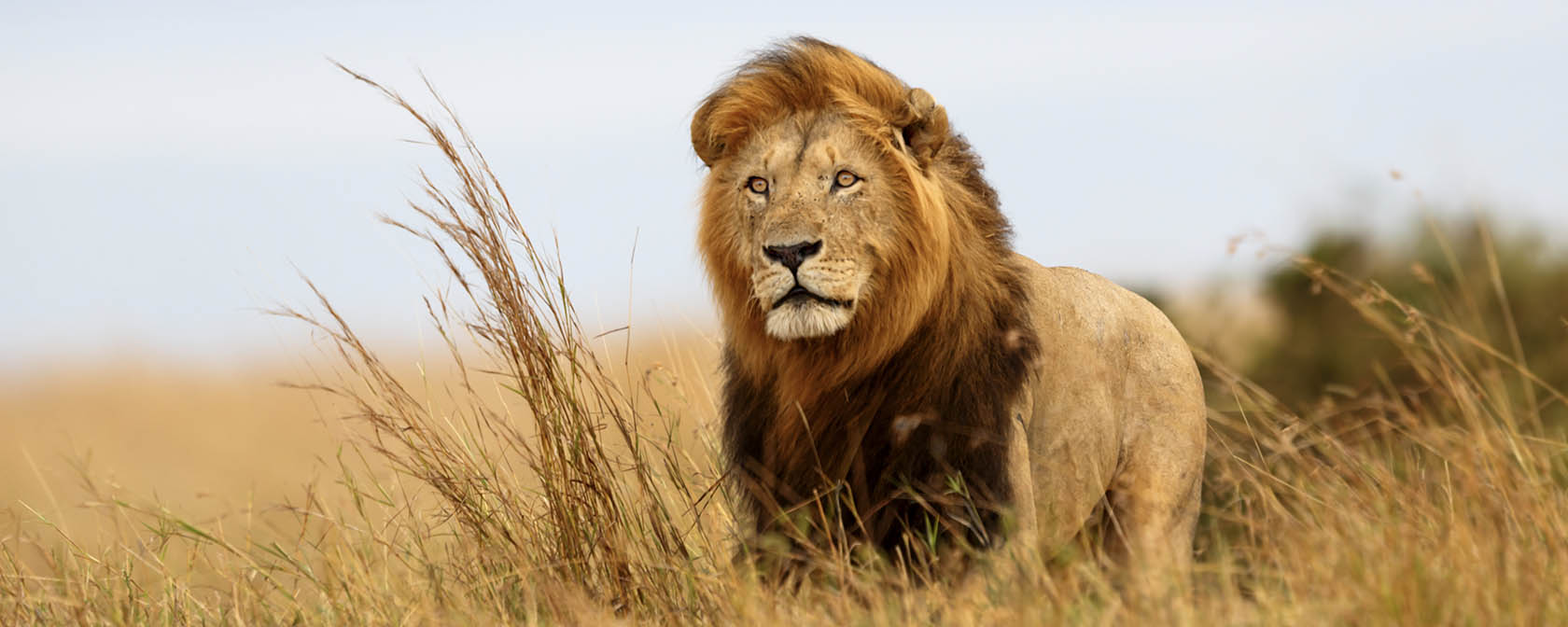By Sara Amundson and Kitty Block
Today, on World Lion Day, we celebrate lions as an iconic wild cat species, and we recommit to our campaigns to halt their exploitation and destruction in the United States and abroad. We are giving it all we’ve got.
In the wild, of course, this iconic species is among the most imperiled of all with as few as 20,000 left in range nations.
In South Africa, a particularly grim industry has emerged to take advantage of tourists’ affinity for lion cubs. An estimated 11,000 lions are held captive there in more than 300 facilities, and the captive lion breeding industry undergirds activities such as cub petting, lion walking, canned hunting and the trade in lion bone and parts—all causing obvious harm to lions. Such facilities dupe unsuspecting tourists into spending time and money on volunteering at these facilities, under the guise of “conservation.” Substandard housing and welfare standards, inhumane slaughter and pending cruelty cases like one stemming from a 2019 investigation tell the sad story. Lions, leopards, tigers and caracals on the property were living in filthy and parasitic conditions. Many suffered from mange and/or neurological conditions and were unable to walk.
Breeders rip the lion cubs from their mothers at just a few days old, turning them into photo props and presumed “orphans” as part of a pitch to unsuspecting tourists to walk or cuddle with them. When lions grow too big to be cuddled, they’re sold to canned hunts to be shot in fenced enclosures by trophy hunters, their bones subsequently exported to Asia for the medicinal trade.
We’ve trained our fire on the “snuggle scam” and recently submitted recommendations to a governmental panel in South Africa, pressing for an immediate moratorium on new captive lion breeding facilities or further breeding at existing lion facilities, as well as a moratorium on the international import and export of live animals and animal parts, including a ban on exports of lion bones and specimens destined for Asia.
A North American big cat species, the mountain lion, is also suffering intense persecution, primarily from indiscriminate killing quotas that pander to trophy hunters. Their range shrinking throughout the U.S., mountain lion populations can now be found in just 16 states. And despite growing public opposition, trophy hunters kill thousands of rare mountain lions throughout the west and in small pockets of the Midwest each year. They commonly use packs of radio-collar hounds to corner mountain lions in trees or against rock ledges to set up an easy kill. In states like Texas where they are an unprotected species, mountain lions are even targeted in wildlife killing contests.
The state wildlife agencies that allow this cruel practice refuse to accept the growing body of science that shows that killing these animals is harmful to other wildlife as well as to human communities. They play an underappreciated role in the ecosystems within their range.
As we shared just last week, the Utah Division of Wildlife has introduced a reckless proposal to expand trophy hunting of mountain lions (typically called “cougars” there), pushing for year-round, unlimited hunting of these native carnivores. Similarly, the Washington Fish and Wildlife Commission recently approved a proposal to allow a near 50% increase in its cougar trophy hunting quota to appease hunters as well as ranchers resistant to effective coexistence strategies. Earlier this year, the Nebraska Game and Parks Commission authorized a trophy hunting season for mountain lions in the state’s Pine Ridge region, where the latest estimate shows the population has already been cut in half by trophy hunting.
Finally, Colorado Parks and Wildlife is working to adopt a plan that encourages the use of electronic calls currently prohibited in the state, as well as a new hunting season to increase the killing of mountain lions during their peak birthing season. Coloradans can voice their opposition by emailing the Colorado Parks and Wildlife Commission at dnr_cpwcommission@state.co.us before the August 28th deadline.
There is one measure that caring Americans can take to help lions and other embattled species in the United States and around the world. A bill in Congress, the Prohibiting Threatened and Endangered Creature Trophies Act (ProTECT) Act, is designed to prevent the hunting of any species listed as endangered or threatened under the Endangered Species Act. This measure would ban the import of trophies of ESA-listed species, including lions, elephants, leopards and rhinos, and prohibit the issuance of permits for killing these animals at canned hunting facilities in the United States.
Lions, wherever they live, play an important ecological role, and they deserve better at our hands. We need to learn to coexist with these rare and magnificent animals and do our best to end their persecution wherever it occurs.
P.S. Like many of you, we’ve seen heartbreaking images from the scene of the explosion in Beirut, Lebanon, and we’re glad to know that there are strong local groups responding to the situation of animals there. Humane Society International has made a donation in support of their efforts.
Kitty Block is President and CEO of the Humane Society of the United States.




